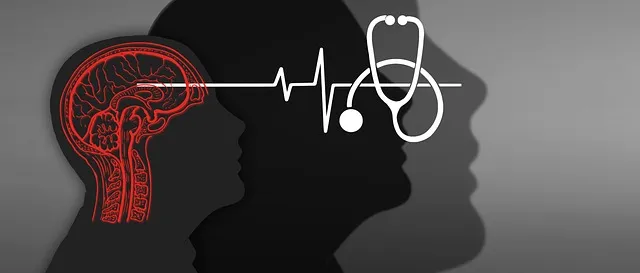The Kaiser Permanente Behavioral Health Center Boulder prioritizes emotion regulation through evidence-based practices like mindfulness meditation, cognitive behavioral therapy (CBT), and emotional awareness exercises. This holistic approach equips individuals with tools to navigate and express emotions healthily, boosting confidence and preventing healthcare provider burnout. Programs focused on coping skills development, stress management, and crisis intervention provide comprehensive support, fostering mental well-being and enhancing patient care for Boulder residents.
Emotion regulation techniques are essential tools for maintaining emotional well-being, and the Kaiser Permanente Behavioral Health Center Boulder is at the forefront of teaching these skills. This article explores various strategies, from cognitive strategies to mindfulness practices and Dialectical Behavior Therapy (DBT), all designed to help individuals manage their emotions effectively. By delving into these techniques, we aim to provide a practical guide for implementing emotion regulation in daily life, inspired by the innovative approaches offered at Kaiser Permanente Behavioral Health Center Boulder.
- Understanding Emotion Regulation: Unlocking Emotional Well-being at Kaiser Permanente Behavioral Health Center Boulder
- The Role of Cognitive Strategies in Teaching Emotion Regulation Skills
- Mindfulness Practices: A Powerful Tool for Managing Emotions
- Exploring Dialectical Behavior Therapy (DBT) Techniques for Effective Emotion Regulation
- Practical Application: Implementing Emotion Regulation Techniques in Daily Life
Understanding Emotion Regulation: Unlocking Emotional Well-being at Kaiser Permanente Behavioral Health Center Boulder

At Kaiser Permanente Behavioral Health Center Boulder, understanding emotion regulation is seen as a key component in fostering emotional well-being among individuals and healthcare providers alike. This holistic approach recognizes that managing emotions effectively is not just a personal endeavor but also crucial for maintaining optimal mental health within the demanding healthcare profession. By integrating various techniques into their practice, the center aims to empower patients with tools to navigate and express their emotions healthily.
Through tailored programs and workshops, Kaiser Permanente Behavioral Health Center Boulder delves into evidence-based practices such as mindfulness meditation, cognitive behavioral therapy (CBT), and emotional awareness exercises. These strategies are designed not only to boost confidence but also to serve as burnout prevention strategies for healthcare providers, ensuring they can better care for others while maintaining their own mental health. The center’s focus on Mental Health Awareness underscores its commitment to creating a supportive environment where individuals can unlock their emotional potential and lead more fulfilling lives.
The Role of Cognitive Strategies in Teaching Emotion Regulation Skills

At the Kaiser Permanente behavioral health center Boulder, cognitive strategies play a pivotal role in teaching emotion regulation skills. These techniques empower individuals to understand and modify their thought patterns, which directly influences emotional responses. Through exercises that foster self-awareness, such as those featured in the Mental Wellness Podcast Series Production, people learn to identify triggers and challenge negative thoughts, thereby reducing intense emotions and promoting healthier coping mechanisms.
Crisis Intervention Guidance is another critical component integrated into teaching emotion regulation skills. By combining cognitive strategies with crisis management techniques, individuals gain a comprehensive toolkit for navigating emotional challenges. This dual approach ensures that when faced with distressing situations, whether at work, home, or in social settings, one has the resources to self-regulate and maintain mental wellness, as advocated by experts from the Kaiser Permanente behavioral health center Boulder.
Mindfulness Practices: A Powerful Tool for Managing Emotions

Mindfulness practices have emerged as a powerful tool within emotion regulation techniques teaching. By focusing on the present moment and non-judgmentally observing one’s thoughts and feelings, individuals can gain greater awareness of their emotional triggers and patterns. This proactive approach is particularly beneficial for those seeking to manage intense emotions effectively.
At the Kaiser Permanente behavioral health center Boulder, mindfulness training often incorporates various practices such as meditation, deep breathing exercises, and body scans. These techniques not only help in risk management planning for mental health professionals but also foster emotional intelligence, enabling individuals to navigate their emotions with greater ease and resilience. Moreover, by integrating mindfulness into their daily routines, participants in the community outreach program implementation can enhance their overall well-being and build a stronger connection with themselves and others.
Exploring Dialectical Behavior Therapy (DBT) Techniques for Effective Emotion Regulation

Dialectical Behavior Therapy (DBT) offers a powerful set of tools for managing and regulating emotions, making it a popular approach at Kaiser Permanente behavioral health centers like the one in Boulder. This therapy is particularly effective for individuals dealing with intense or unpredictable emotions, helping them develop skills to navigate emotional challenges. DBT focuses on fostering self-awareness exercises, encouraging clients to observe their feelings without judgment. By understanding and acknowledging their emotions, individuals can begin to manage them more effectively.
One of the key components of DBT is teaching mindfulness, which enables folks to stay grounded in the present moment, reducing reactive behaviors. Additionally, it introduces strategies for distress tolerance, helping folks cope with overwhelming emotions until they can find a longer-term solution. These techniques are valuable for burnout prevention, allowing individuals to navigate high-stress situations with greater resilience and emotional regulation.
Practical Application: Implementing Emotion Regulation Techniques in Daily Life

At the Kaiser Permanente behavioral health center Boulder, we understand that emotion regulation is a vital skill for navigating daily life. Our experts teach practical techniques that empower individuals to manage their emotions effectively. This includes coping skills development, such as mindfulness and deep breathing exercises, which help to calm the mind and body in stressful situations.
Additionally, our programs incorporate social skills training to enhance interpersonal relationships and support networks. By learning to express emotions healthily and interpret others’ emotional cues, individuals can improve their overall well-being. Stress management is another key focus, with strategies like time management, setting boundaries, and engaging in enjoyable activities to reduce the impact of stressors on mental health.
Emotion regulation techniques, as taught at Kaiser Permanente Behavioral Health Center Boulder, offer a comprehensive approach to emotional well-being. By combining cognitive strategies, mindfulness practices, and evidence-based methods like Dialectical Behavior Therapy (DBT), individuals can effectively manage their emotions in daily life. These skills not only enhance resilience but also foster overall mental health. Incorporating these techniques into personal routines can lead to profound transformations, allowing folks to navigate life’s challenges with greater ease and emotional intelligence.






